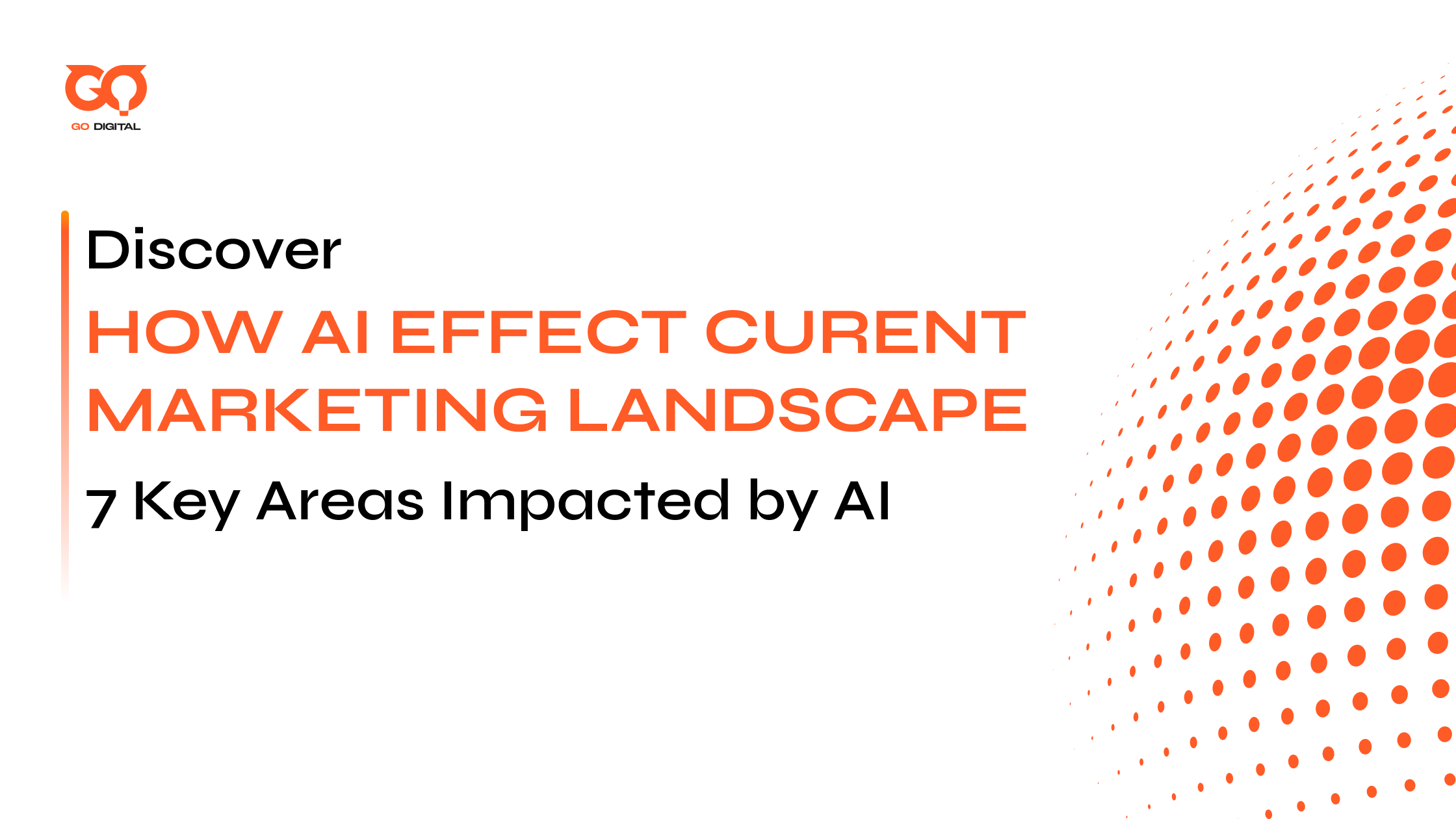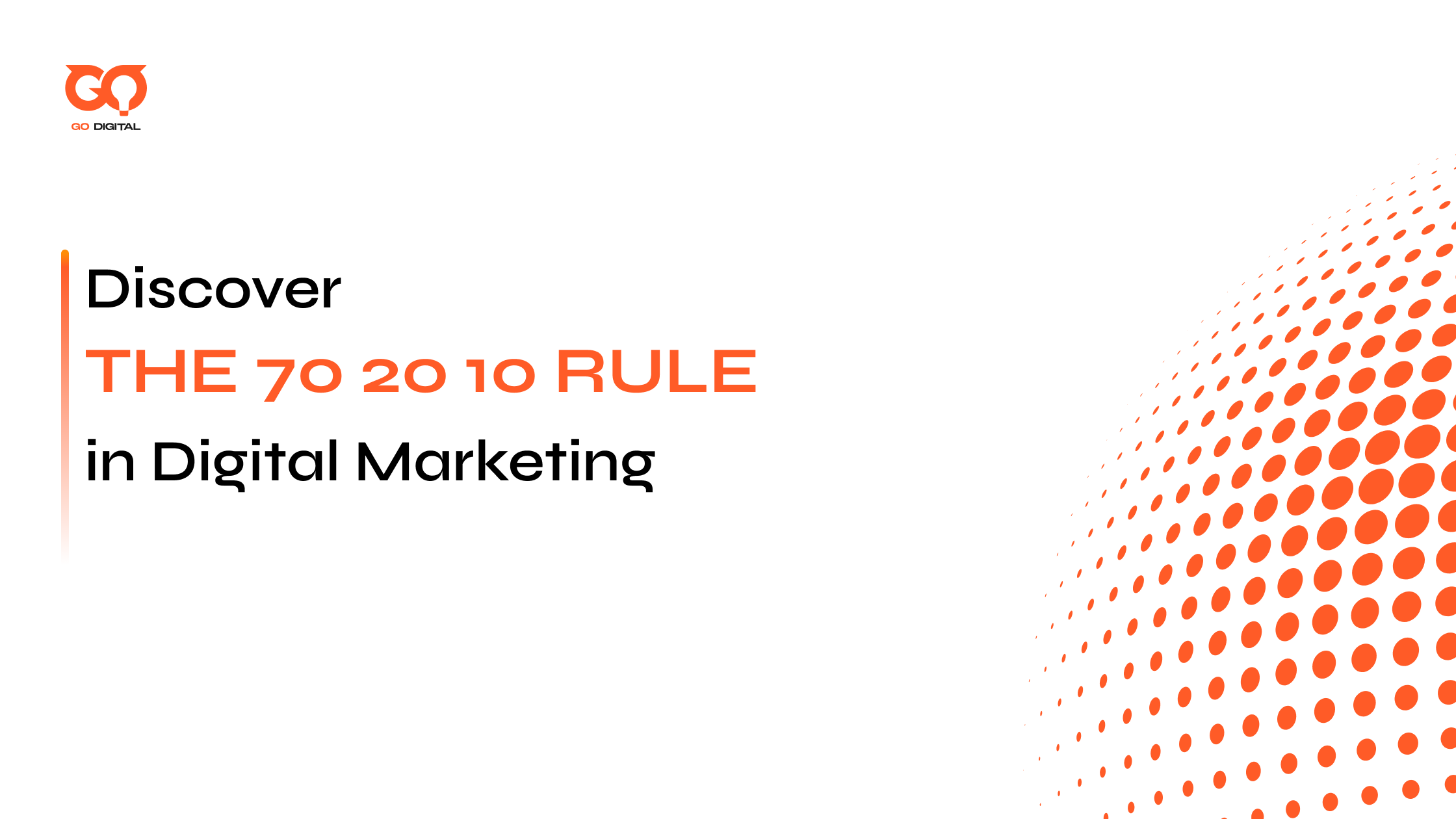The marketing skills that made you successful a few years ago are quickly becoming obsolete. The reason is clear: Artificial Intelligence (AI) is automating analytics, content personalization, and ad optimization at a speed that humans can barely keep up with.
This raises a straightforward question: how AI effect curent marketing landscape, specifically, your day-to-day work? This article won’t be about some fantastical future, but will dive straight into the changes in skill sets, workflows, and how we measure performance in the AI era.
Key Takeaways
|
How AI Affects the Current Marketing Landscape?
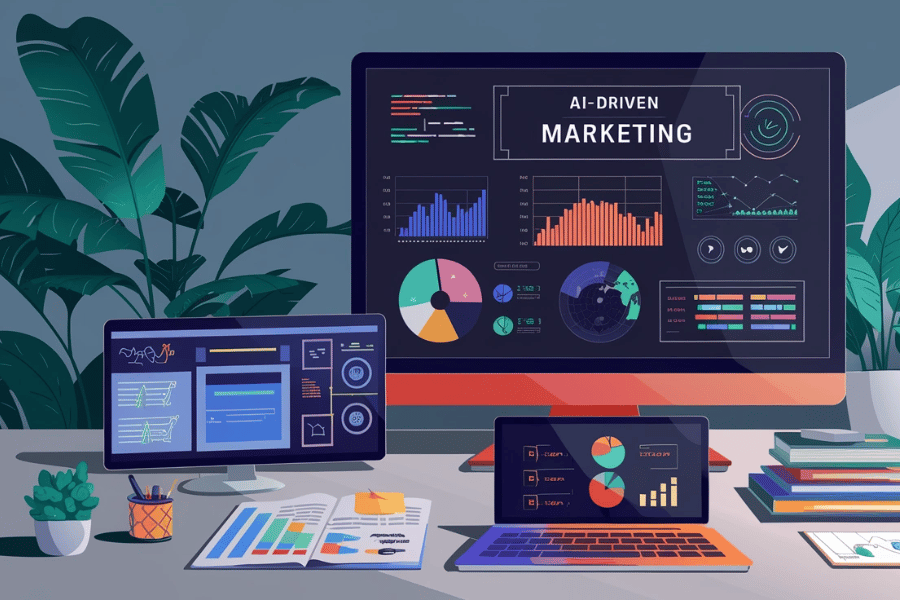
AI is shifting marketing from broad campaigns to intelligent ones
Marketing strategy has undergone a fundamental transformation thanks to Artificial Intelligence. In the past, marketers relied on broad demographic data, survey results, and educated guesses based on previous campaigns.
Now, AI algorithms have shifted this approach from being reactive to proactive. According to the report by MMA and Decision Lab, 89% of Vietnamese businesses are already incorporating AI into their marketing strategies, with 78% of those using it reporting moderate to high adoption.
Instead of just looking at past behavior, these systems analyze customer interactions in real-time to forecast future actions and deliver personalized content. This allows modern marketers to anticipate consumer needs before they are even expressed.
7 Key Areas Where AI Influences Marketing
AI’s impact is a widespread influence that touches nearly every part of a modern marketing strategy. Here are seven key areas where AI is making a significant difference.
1. Data-Driven Decision Making
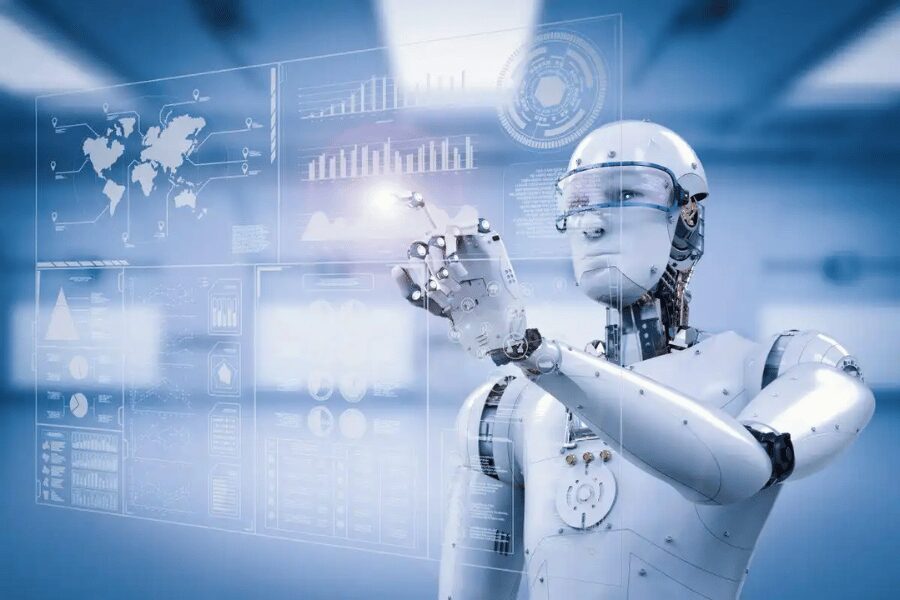
AI helps make decisions based on evidence
Marketing has always used data, but AI takes it to a new level. Humans can easily get overwhelmed by massive datasets. However, AI can analyze billions of data points in seconds to find patterns and insights that a human would miss.
According to a McKinsey study, companies that use AI to analyze customer data can increase profits by up to 60% compared to competitors that don’t.
This allows marketing decisions to be based on solid evidence, not just intuition. For example, AI can analyze sales data, feedback, and market trends to find new profitable audience segments, leading to more effective campaigns.
2. Marketing Automation
According to Moosend’s report, when monitoring opens and clicks, the top-performing campaigns are RSS emails (56.74 and 10.57) and autoresponders (51.05 and 5.59). Basic automation follows simple “if-then” rules.
It can analyze a user’s behavior to decide the next best action. Instead of sending the same follow-up email to everyone, an AI can personalize the message based on which parts of the ebook the user seemed most interested in.
3. Personalization and Customer Experience
Modern customers expect personalized experiences. They want brands to understand their individual needs. AI is the technology that makes this possible at scale. A study by McKinsey found that personalization can lift revenues by 5-15% and improve marketing spend efficiency by 10-30%.
AI analyzes a customer’s browsing history, past purchases, and real-time behavior to deliver unique experiences.
- Netflix uses AI to recommend shows based on what you have watched.
- Amazon uses AI to show you products you are likely to buy.
- In Vietnam, Nestlé used Google AI to deliver 50,000 personalized Tet greetings, which boosted brand favorability by 23%.
4. Chatbots and Customer Interaction
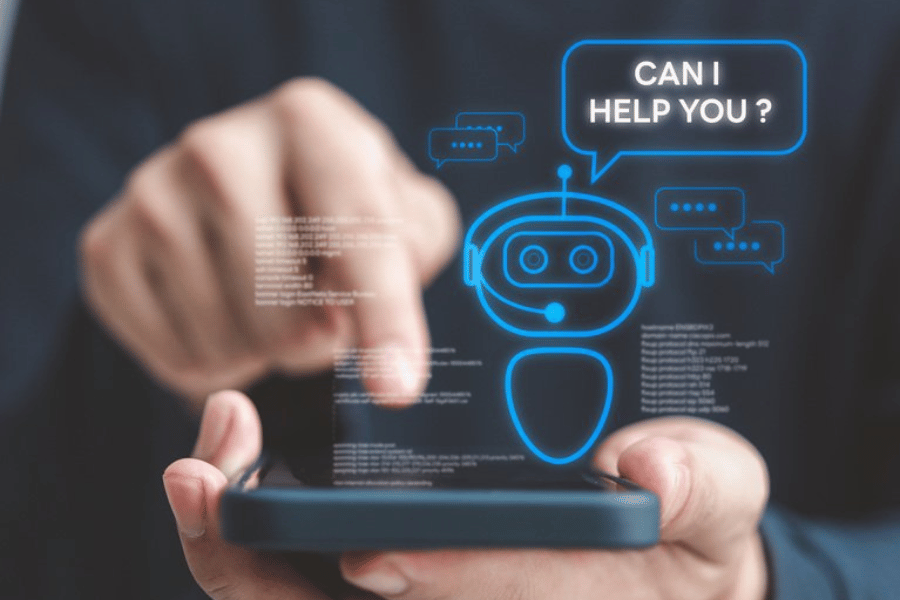
AI-powered chatbots have become a standard part of customer service
AI-powered chatbots have become a standard part of customer service. They are available 24/7 to answer common customer questions, resolve simple issues, and guide users through a website.
Modern chatbots use Natural Language Processing (NLP) to understand and respond in a human-like way. They can handle tasks like tracking an order, booking an appointment, or providing product information.
AI-powered chatbots revolutionize customer service by delivering efficient, personalized, and cost-effective solutions. Specifically:
- Efficiently handle customer service queries: In fact, according to data from Infomineo, over 14,000 merchants who switched to AI chatbots, 37% saw a reduction in their first response time, and 52% experienced a decrease in resolution time.
- Gather customer data and feedback: Chatbots collect and analyze interaction data, allowing the company to identify pain points and improve retention.
- A cost-effective solution than hiring human agents: A report by IBM indicates that customer service costs can be reduced by up to 30% by implementing AI customer service chatbots.
5. Content Creation and Optimization
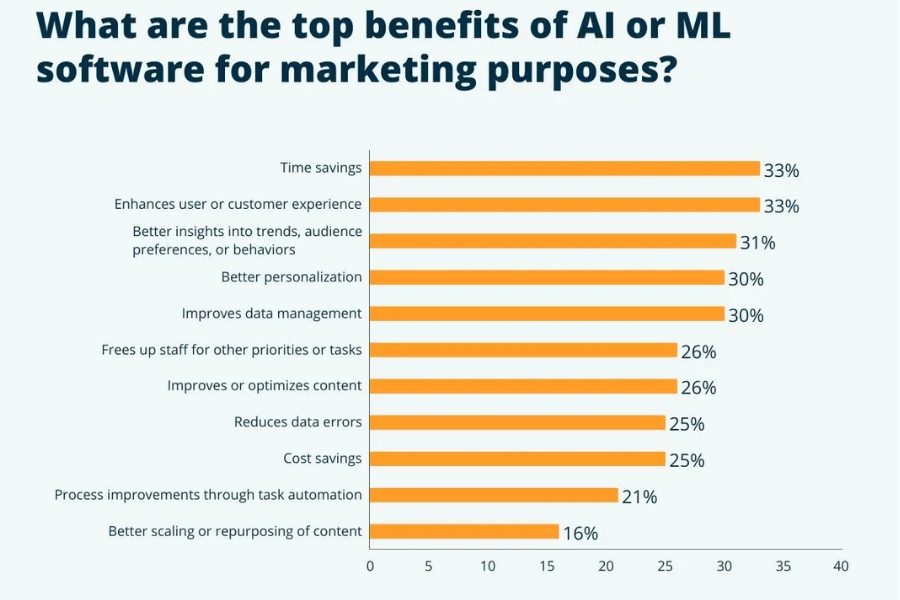
Saving time is the top benefit of using AI software
According to a Capterra survey, marketers who use AI to create content say they saved an average of 33% time and 25% cost in their content production process.
Generative AI models can write first drafts of blog posts, social media updates, and email newsletters. For instance, Vietnam’s X-Men Mood Up campaign featured AI-generated visuals inspired by the country’s landscapes.
AI in digital marketing can also analyze top-performing content in your industry and suggest which topics to cover. It can also recommend keywords to use or suggest improvements to your headlines to get more clicks.
6. Predictive Analytics
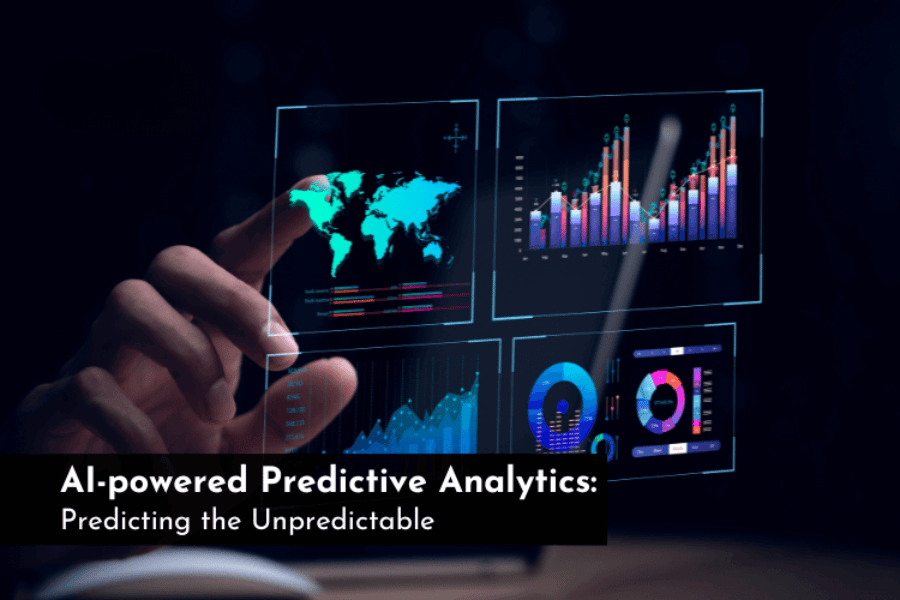
AI is essential to predictive analytics
AI is essential for predictive analytics, using historical data to forecast future outcomes. For example, AI can predict which customers are likely to churn, allowing marketers to proactively target them with retention offers.
7. Programmatic Advertising
Programmatic advertising is the automated buying and selling of digital ad space. AI is at the core of this process. It uses real-time bidding (RTB) to decide which ads to show to which users, all in the milliseconds it takes for a webpage to load.
This AI-driven advertising is incredibly efficient. It analyzes user data to show ads to the people who are most likely to be interested in the product. This increases the relevance of ads for consumers and improves the return on investment for advertisers.
AI’s Impact on Marketing Jobs, Skills, and Challenges
The role of the marketer is evolving from a task-doer to a strategic manager of AI-powered tools.
AI will not replace marketers, but it is changing what it means to be a marketer. The focus is shifting from manual tasks to strategic thinking.
How AI Reshapes Marketing Roles
AI is very good at automating routine and repetitive tasks. This includes tasks like:
- Pulling basic performance reports.
- Scheduling social media posts.
- A/B testing different ad headlines.
By automating these tasks, AI frees up marketers to focus on work that requires a human touch. This includes high-level strategy, creative campaign development, brand building, and building relationships with customers. The job is becoming less about “doing” and more about “thinking” and “directing.”
If you want to explore whether AI-driven advertising fits your strategy and how to effectively leverage it, check out our article on Should you use AI in advertising?
The Growing Need for AI Skills
To succeed in this new landscape, marketers need to develop new skills. They do not need to become AI programmers, but they do need to be comfortable working with AI tools. Key skills for the modern marketer include:
- Data Literacy: The ability to understand data, interpret AI-powered reports, and ask the right questions.
- AI Tool Management: Knowing how to use various AI marketing platforms and provide the right inputs to get the desired results.
- Prompt Engineering: The skill of writing clear and effective prompts to guide generative AI tools.
- Critical Thinking: The ability to evaluate AI output, spot potential errors or biases, and make strategic decisions.
Ethical, Data Privacy, and Creativity Challenges
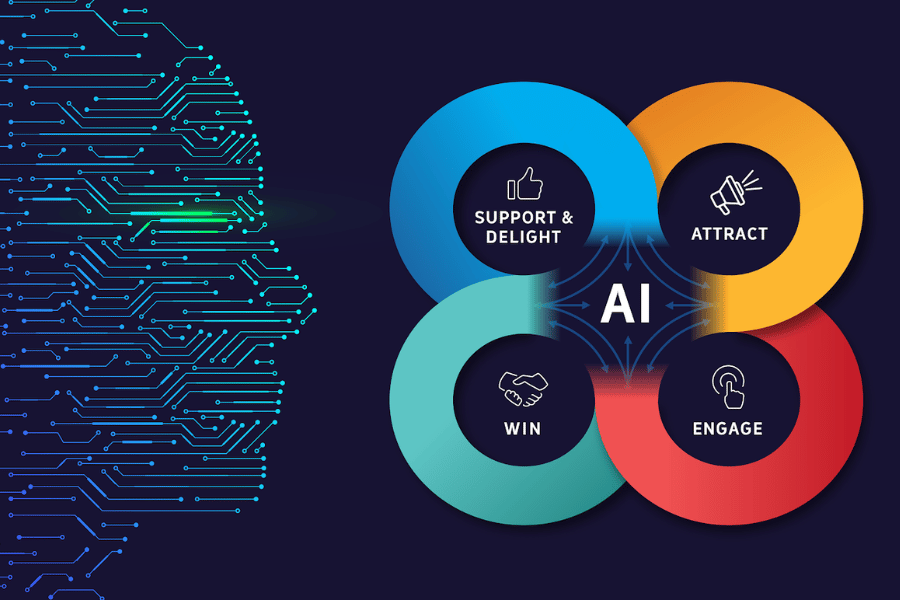
Balancing AI’s power with human responsibility is key to navigating these hurdles
The use of AI in marketing also comes with significant challenges that require human oversight.
- Ethical Concerns: Marketers must be careful about AI bias. An AI algorithm could unintentionally discriminate against certain groups of people.
- Data Privacy: Using customer data for personalization must be done responsibly and in compliance with regulations like GDPR. Marketers need to be transparent about how they use data.
- Creativity: There is a fear that AI will make marketing less creative. However, the best campaigns will come from human creativity guiding the AI.
Conclusion
So it’s clear that AI is no longer just a supplementary tool, but has become a new foundational layer in all marketing activities. From personalizing customer experiences at scale to predictive data analytics, its impact is undeniable.
At Golden Owl Digital, we focus on leveraging these powerful tools to build smarter strategies, while never losing the human connections. Don’t ask “if”, start with “where to start”. A small step today is your uncopyable competitive advantage tomorrow

Jaden is an SEO Specialist at Golden Owl Digital. He helps brands rank higher with technical SEO and content that resonates

